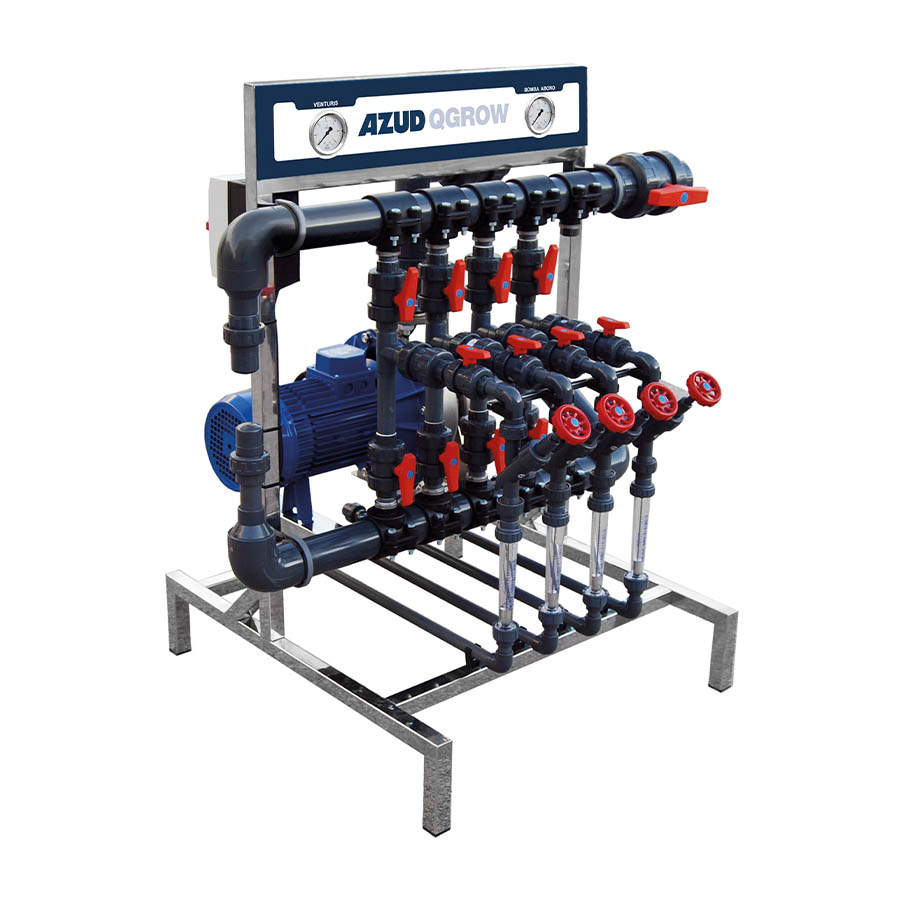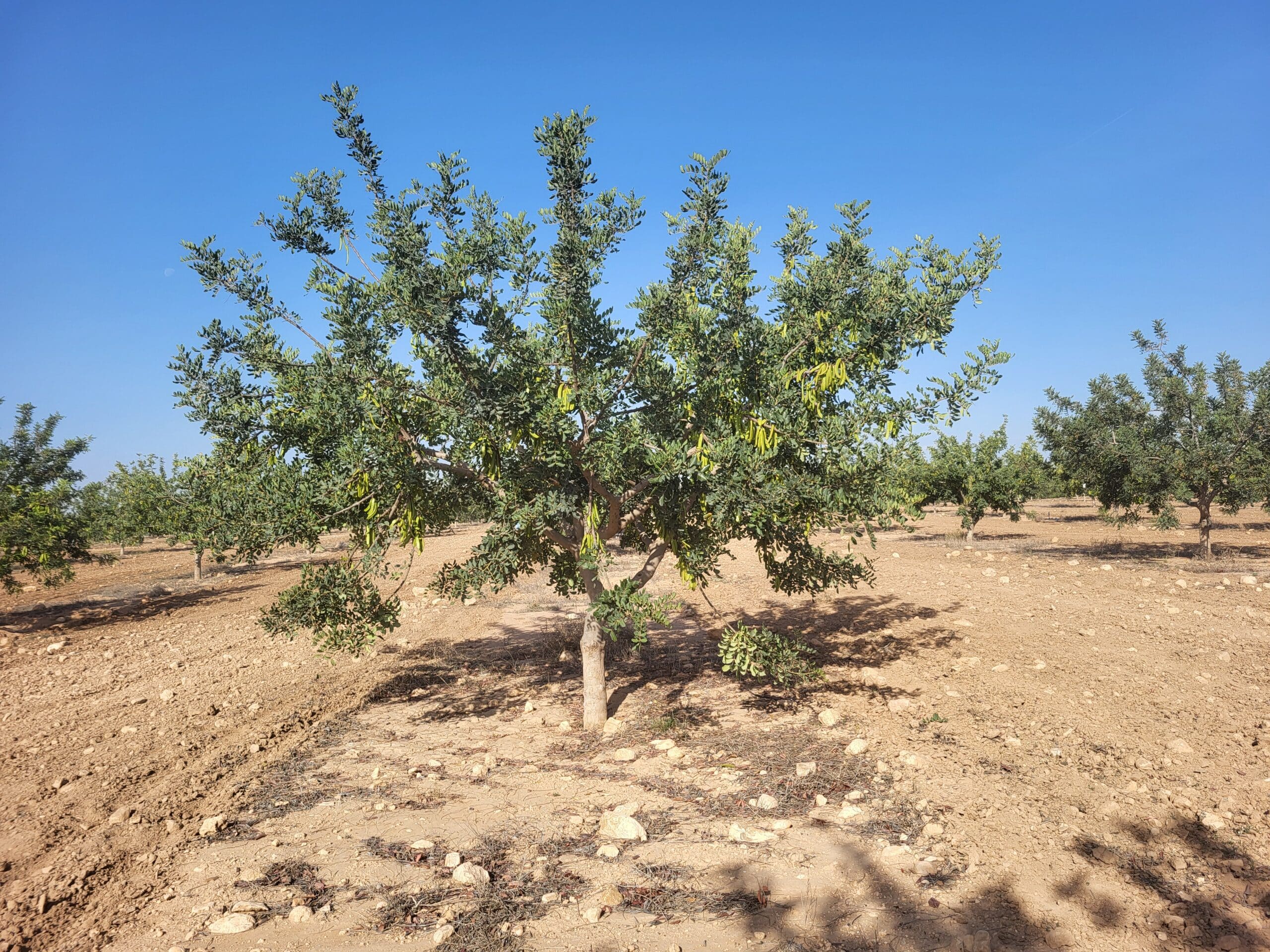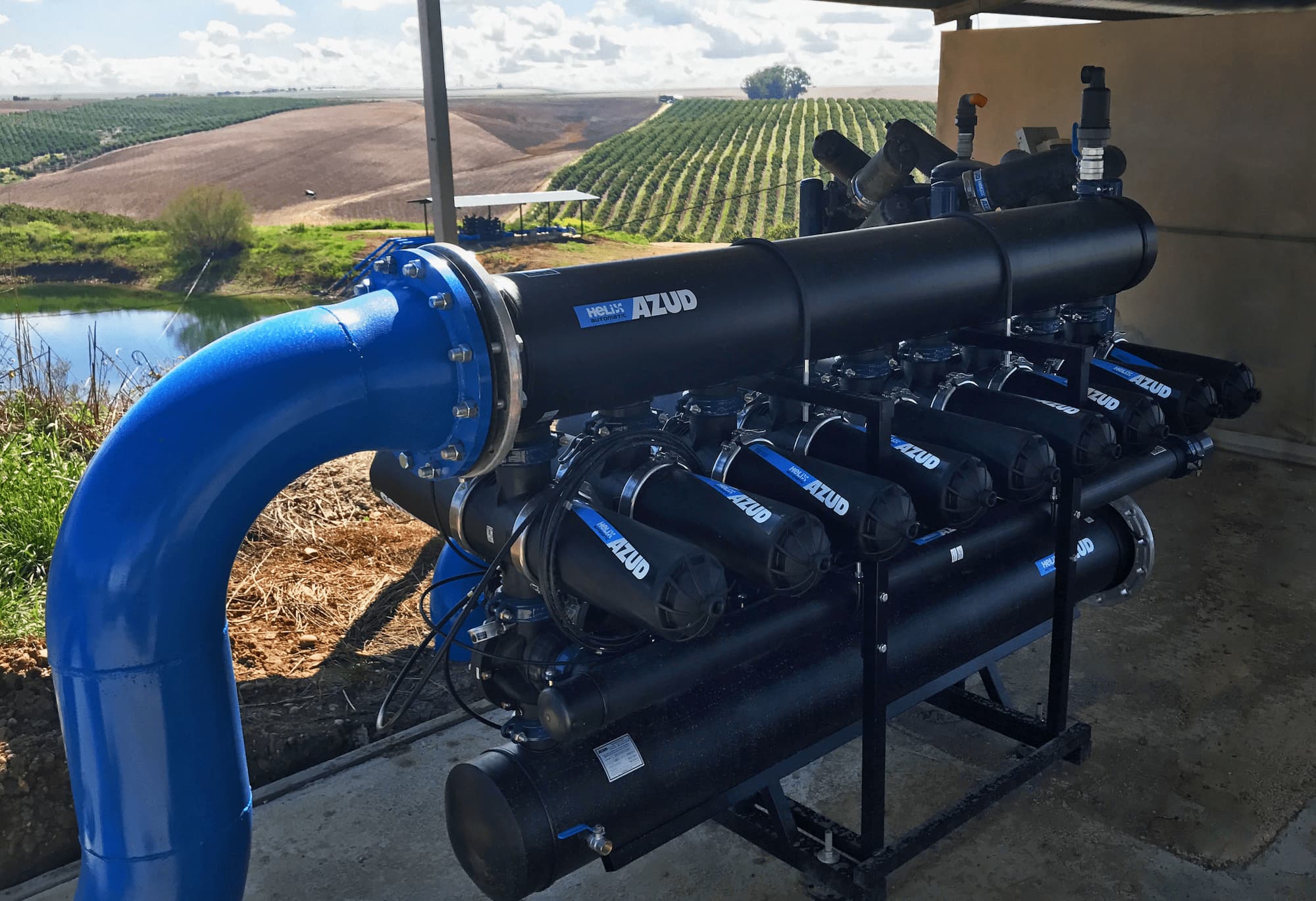Table of contents
What is Plant Nutrition?
Plant nutrition encompasses the processes through which plants obtain and utilize the necessary nutrients for their growth, development, and reproduction.
For successful crop cultivation, it is crucial that plants receive complete and balanced nutrition. Essential nutrients include carbon (C), oxygen (O), hydrogen (H), nitrogen (N), phosphorus (P), potassium (K), calcium (Ca), magnesium (Mg), sulfur (S), iron (Fe), manganese (Mn), zinc (Zn), copper (Cu), boron (B), molybdenum (Mo), and chlorine (Cl).
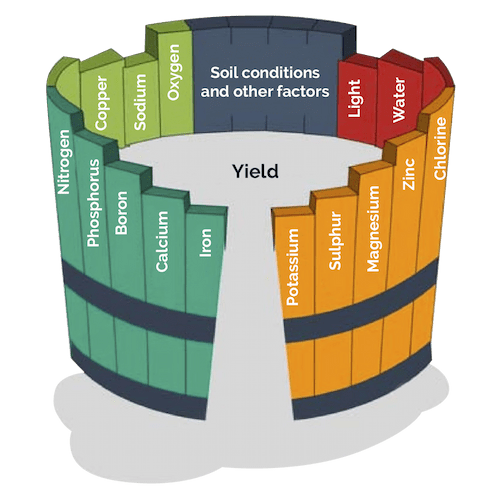
Liebig’s law of the minimum states that crop yield is limited by the nutrient present in the smallest quantity, and an excess of any other nutrient cannot compensate for that deficiency. Furthermore, an excess of certain nutrients can have negative effects on plant development and crop yields.
Factors to Consider for Proper Plant Nutrition
To achieve proper plant nutrition, several factors need to be considered. These factors include soil pH, electrical conductivity, irrigation water, and crop-specific characteristics.
Soil pH influences nutrient availability to plants as it affects the solubility of salts and, therefore, nutrient availability. Soil and irrigation water electrical conductivity serve as indicators of salinity, and increased salinity can impede water and nutrient absorption by plant roots. Additionally, soil and water analysis is necessary to determine the essential physical, chemical, and microbiological characteristics and ascertain the fertilization requirements of crops.
Importance of Soil pH in Plant Nutrition
Soil pH significantly impacts nutrient availability to plants. Soil acidity or alkalinity influences the solubility of salts and, consequently, nutrient availability. The maximum solubility of fertilizers occurs within a soil pH range of 6 to 7, corresponding to slightly acidic soils.
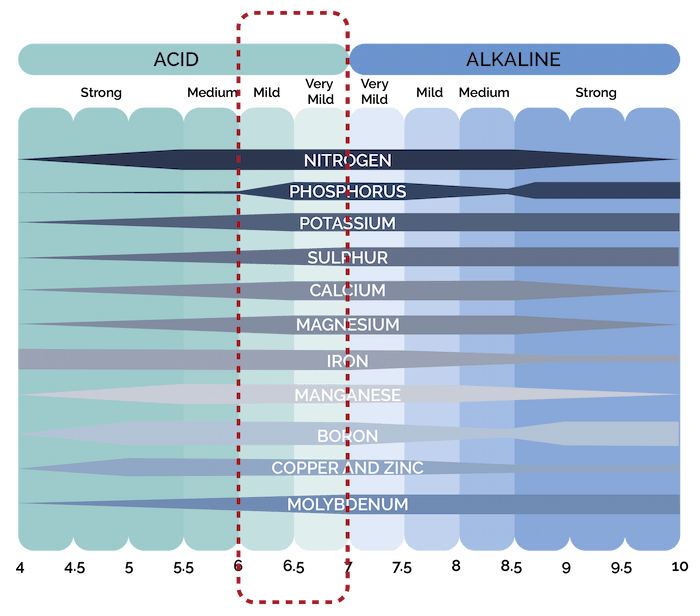
Importance of Electrical Conductivity in Plant Nutrition
Electrical conductivity of soil and irrigation water is a key factor in plant nutrition. Increased soil salinity, indicated by higher electrical conductivity, hampers water and nutrient absorption by plant roots. It is important to monitor electrical conductivity to avoid salinity problems, particularly those caused by ions such as sodium, chlorine, and sulfur.
Importance of Water, Soil, and Plant Variables for Proper Plant Nutrition
Plant nutrition requires a holistic approach that takes into account not only nutrients but also soil, water, and crop-specific characteristics. Conducting soil and water analyses is essential to determine fundamental physical and chemical characteristics. Furthermore, analyzing the soil solution and leaves allows for an assessment of whether nutrients are adequately reaching the plant parts where they are needed. In the case of organic fertilization, it is also important to consider the microbiological aspect of the soil.
Groups of Fertilizers for Plant Nutrition
There are three main groups of fertilizers based on their state and form of presentation: solid fertilizers (water-soluble), liquid fertilizers (solutions), and organic fertilizers.
- Solid fertilizers can be granulated, pelletized, or crystallized, and they are typically in the form of salts.
- Liquid fertilizers are prepared by dissolving solid fertilizers in water, and they are also in the form of salts.
- Organic fertilizers are based on organic matter of animal or plant origin and can be in solid or liquid form.
Plant Nutrition Techniques
In modern agriculture, nutrients are primarily applied through fertilizers, and various application techniques exist on a farm. These techniques include broadcasting, localized application, foliar application, and fertigation. These techniques are complementary and can be used simultaneously on the same farm.
Fertigation: The Best Plant Nutrition Technique
Fertigation stands out as one of the best plant nutrition techniques. This technique offers several significant advantages.
Firstly, it allows for efficient nutrient absorption by plant roots. By locating the nutrients near the roots, greater absorption efficiency and uniform nutrient distribution among all plants are achieved.
Furthermore, fertigation enables high-frequency nutrition during plant activity periods, which is particularly beneficial. The technique also reduces limitations related to soil fertility, as fertilizer and nutrient concentrations can be adjusted, maintaining an optimal range of soil pH and electrical conductivity, and continuous fertilizer inputs can be provided during irrigation.
Fertigation also provides cost savings associated with application machinery and is considered a sustainable technique that avoids environmental pollution.
Multichannel or Multi-Injection Fertigation
Multichannel fertigation is a highly beneficial practice where multiple fertilizers, acids, bases, bio-stimulants, among others, are simultaneously supplied during irrigation. This ensures a balanced nutrient solution and optimizes pH and salinity conditions to stimulate beneficial soil microorganisms.
To achieve multi-injection, it is necessary to select a technology that avoids incompatibilities between fertilizers and allows for rapid dissolution in irrigation water.
Additionally, it is important to consider the maintenance and care of irrigation emitters, which can be done through the chemigation technique.
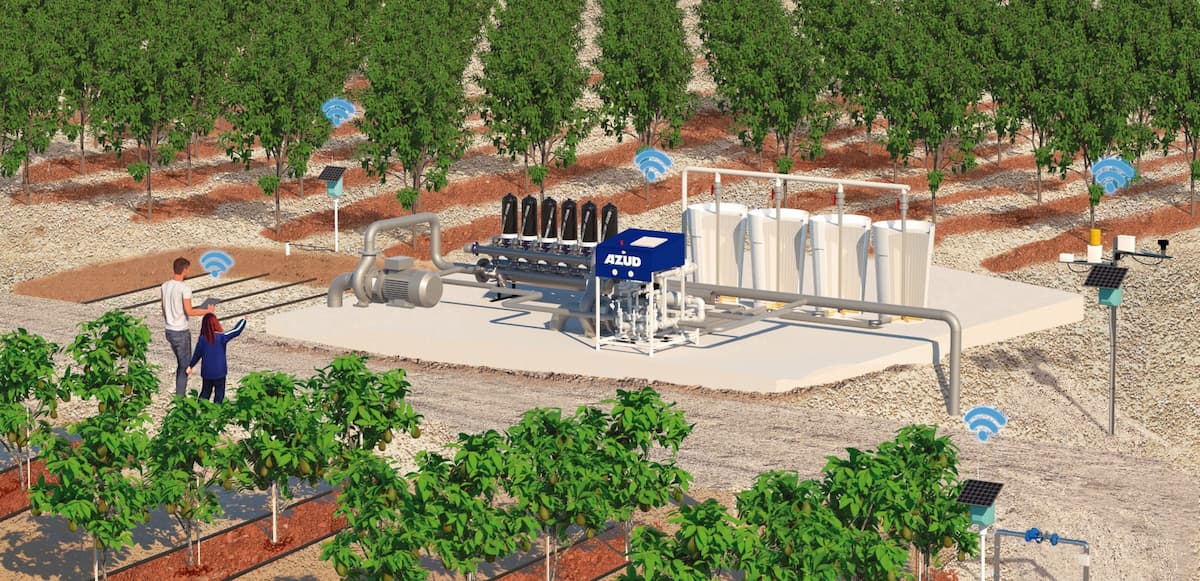
Dosage Technologies in Multichannel Fertigation
There are two types of dosage used in multichannel fertigation: hydraulic and electric.
Hydraulic dosage is based on mechanisms driven by the water energy in the irrigation system, eliminating the need for electrical installation.
On the other hand, electric dosage uses mechanisms driven by an electric motor and offers higher precision and proportionality in dosage. Although electric dosage involves higher initial investment and requires additional technical knowledge, it provides greater viability for automation and digitalization of fertigation processes.
AZUD Solutions in Plant Nutrition
AZUD is a company that embraces the technique of fertigation and offers advanced solutions in plant nutrition. Their technology of electric multi-injection, such as AZUD QGROW BS and AZUD QGROW V, allows for precise and balanced dosing of fertilizers, facilitating efficient crop nutrition.
AZUD QGROW BS
A multichannel fertigation system that enables simultaneous and precise dosing of multiple fertilizers using Venturi-type injector technology.
AZUD QGROW V
A multichannel fertigation system with visualization of temperature, pH, and conductivity parameters. Similar to AZUD QGROW BS, it allows for simultaneous and precise dosing of multiple fertilizers using Venturi-type injector technology.
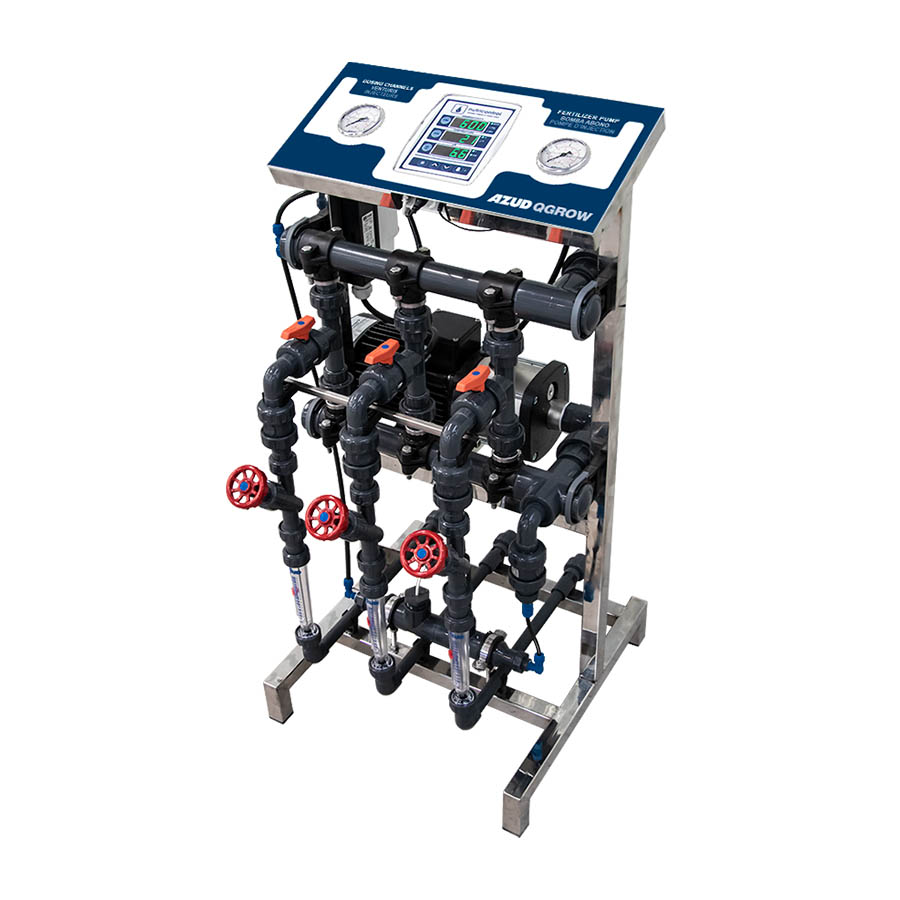
Why Choose AZUD for Proper Plant Nutrition in Your Crops
Choosing AZUD ensures optimal plant nutrition for your crops due to the following reasons:
- Versatility: AZUD offers versatile solutions that can be adapted to the specific needs of each installation, ranging from simple options to more complex and digitalized systems.
- Ergonomics and User Adaptation: AZUD equipment is designed with user comfort and ease of use in mind, allowing for both manual operation and automation.
- Extensive Irrigation Knowledge: As manufacturers and integrators of irrigation solutions, AZUD possesses in-depth knowledge of irrigation facility requirements, ensuring efficient technology utilization.
- Maintenance and Technical Service: AZUD provides high-quality technical support and training, offering guidance both before and after the sale. Additionally, their AZUD QGROW solution optimizes the maintenance of microirrigation pipes, ensuring proper system operation.
- Commitment to Sustainability: AZUD prioritizes sustainability by avoiding fuel consumption and environmental pollution. Furthermore, they offer renewable energy options for remote rural areas.
- Experience and Guarantee: With extensive experience in the field of plant nutrition, AZUD is a reliable choice to ensure proper nutrition for your crops.


